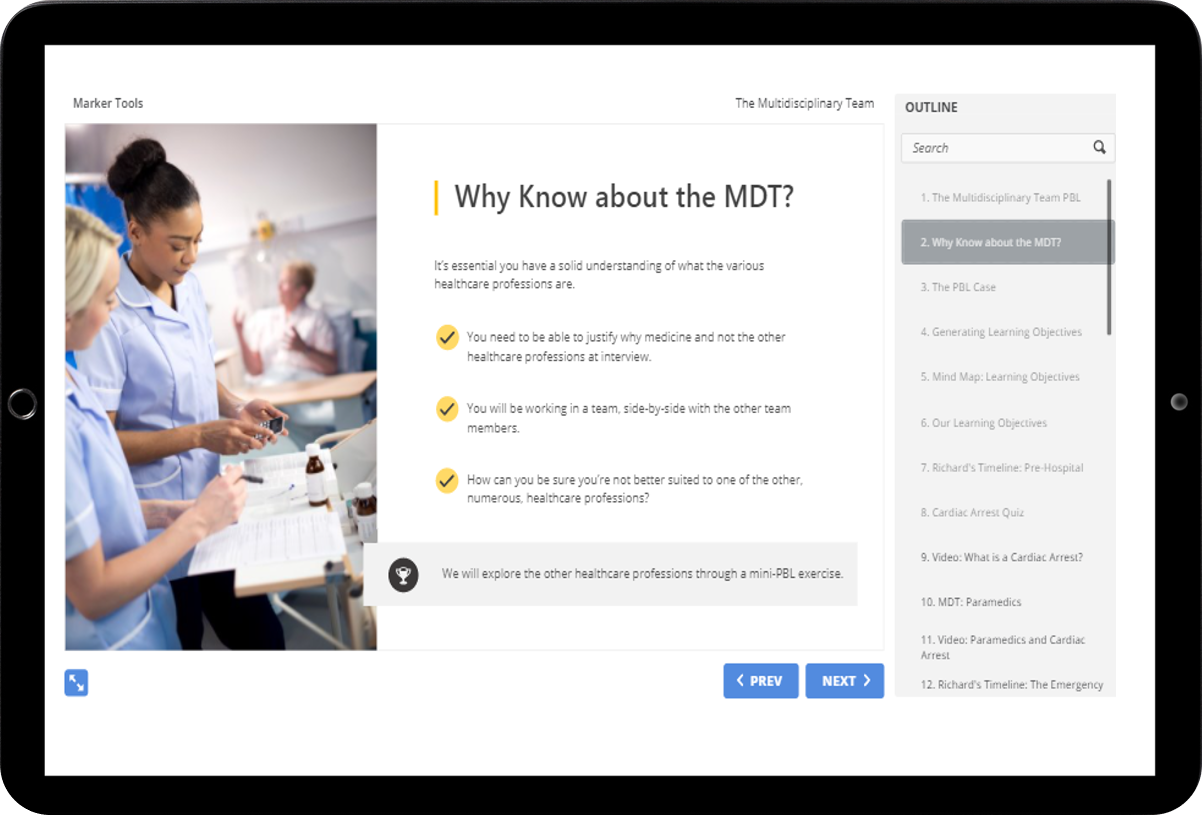TMP MedSoc
Get informed. Get inspired. Get an edge in your Medicine application. Welcome to TMP MedSoc - the medical society that everyone can join! You'll get access to 15 online modules throughout the year. It's just £25 for 12 months of Doctor-designed e-Learning, carefully designed to support your application.

Already subscribed? Log in now and get access to all available modules.
TMP MedSoc Modules
LIVE NOW! What is Problem Based Learning? Find out now. And give it a try! Immerse yourself in a PBL experience!
LIVE NOW! Tackle a range of ethical scenarios, based on the recent Covid-19 outbreak. Step into a doctor’s shoes at a time of crisis!
LIVE NOW! In this module, we explore how to write a stand-out personal statement!
LIVE NOW! We explore factors involved when shortlisting your medical school choices.
LIVE NOW! We explore one of the most important steps in your application: UCAT and BMAT.
LIVE NOW! How is studying medicine at Oxbridge different from other universities?
LIVE NOW! Many people aspire to become a doctor. But what's it really like?
LIVE NOW! Explore the multidisciplinary team through a problem-based learning exercise.
LIVE NOW! In this module we’ll explore some of the basic principles surrounding capacity and consent.
LIVE NOW! Compete in the TMP Christmas Quiz! Answer 20 fun medically-themed questions. How many will you get right?
LIVE NOW! Want to learn about common medical conditions? Enjoy PBL? Then this module is for you!
LIVE NOW! This module explores mental health and how to support yourself and others. Delivered with a PBL approach.
LIVE NOW! In this module we will explore a basic overview of the NHS, from its foundation to the future plans.
LIVE NOW! We explore vaccines, from how they act, to the different types of vaccines available in the UK.
LIVE NOW! We'll look at how to prepare for the transition from school to university.
Coming Soon!
Get Access to TMP MedSoc Today!

MedSoc for Schools
Hundreds of schools subscribe to TMP MedSoc for their aspiring medics. Get in touch today and one of our team can discuss how MedSoc can work for your students.





